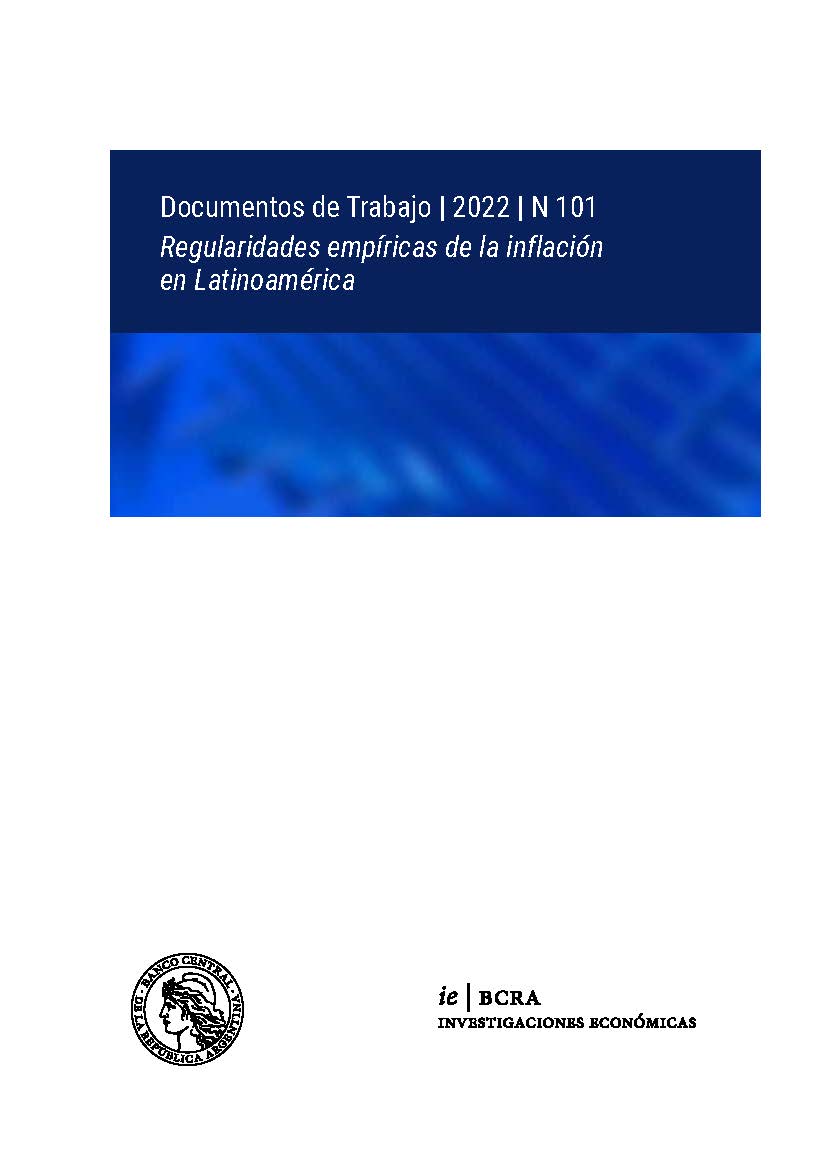Empirical regularities of inflation
Working papers | 2022 | N 101
Keywords:
Inflation, Latin American, Econometric modelsAbstract
This work carries out a comparative study of the dynamics of inflation and its various determinants for Argentina, Brazil, Chile, Colombia, Mexico and Uruguay during the period 2004-2019. The objective is to document a number of empirical regularities that are useful for discussions about determinants and mechanisms of inflationary processes in these countries. First, a cointegration analysis is carried out that identifies two long-term relationships in all the countries studied: one related to the influence of different costs on prices, and another linked to the demand for money. Then a methodology is proposed to decompose the short-term evolution of interannual inflation into parts related to the lagged effects of the different variables and others linked to the contemporary effect of the different determinants. As a result, it emerges that the influence of the persistence of inflation itself accounts for a large part of the inflation dynamics in Argentina, Uruguay and (to a lesser extent) Brazil. For the cases of Colombia and Mexico, the relative contribution of autonomous persistence and that generated by lags in the other determinants is more even. Finally, in the analysis of Chile, autonomous persistence has a disposable influence. When evaluating the effects of the lags of the rest of the determinants on inflationary dynamics, heterogeneous responses are found in the sample countries.
JEL classification: C32, E31


